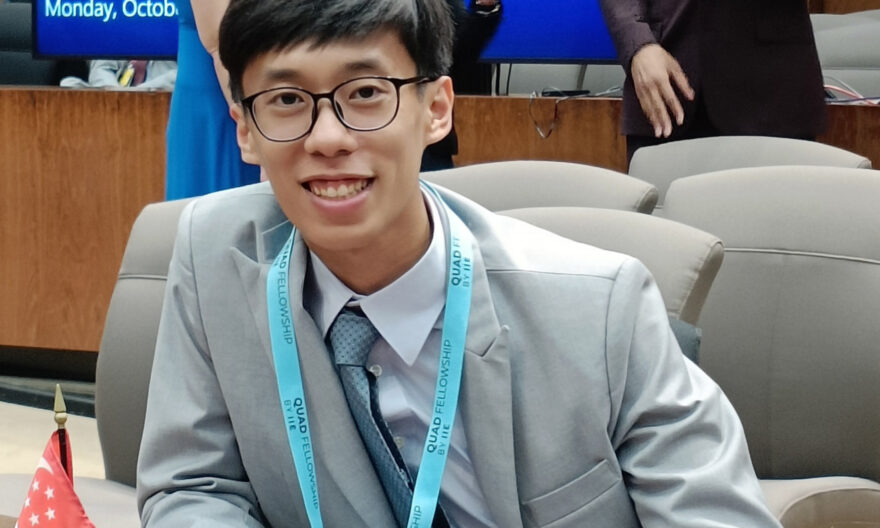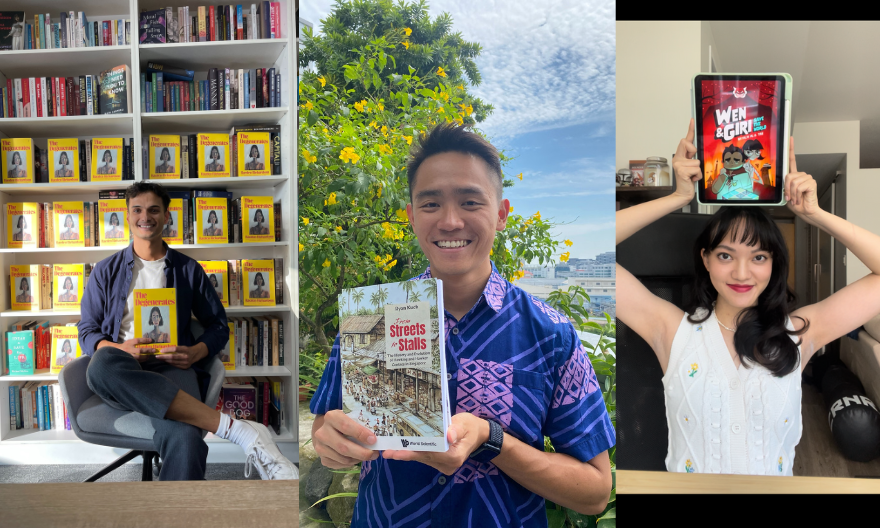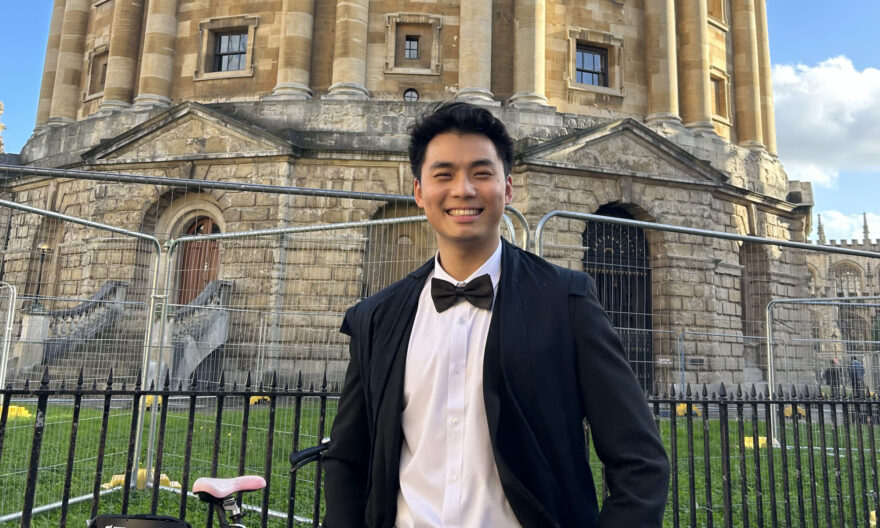Yale-NUS alumni share insights from their journeys in the art world
Ritika Biswas and Hunter Deerfield, both from the Class of 2018, returned to Yale-NUS to share about their careers in the art world
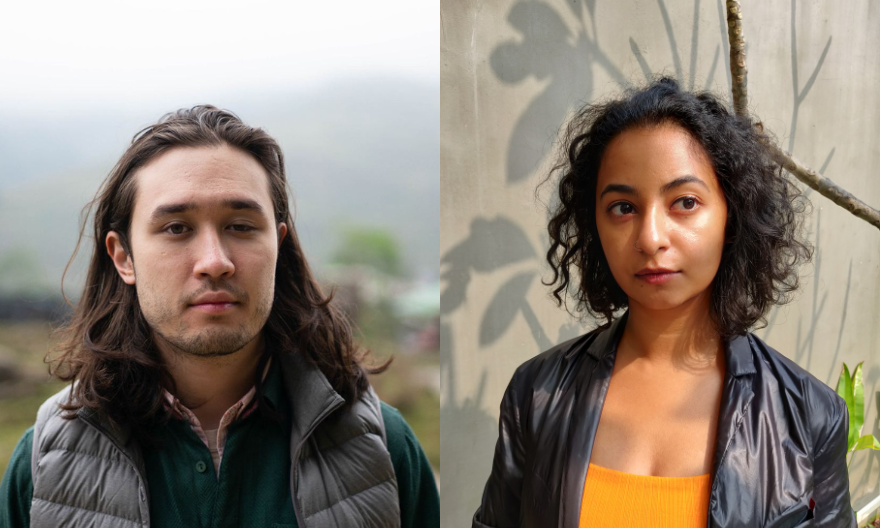
Yale-NUS alumni Hunter Deerfield and Ritika Biswas, both from the Class of 2018, returned to Yale-NUS College in October, motivated to speak to their juniors and the Yale-NUS community about their work and insights, from their time in the art industry. We spoke to them about how their experiences at the College had influenced their journeys.
Hunter is an independent researcher and editor whose interests include contemporary art practices in Southeast Asia. He has been travelling around Southeast Asia since 2018, visiting studios and interviewing artists to understand and document regional art practices that sit outside of traditional curatorial and academic frameworks. These efforts have culminated in a publishing archival project, KIRTI, which references Kirti-Mukha, a motif found above doorways of temples across South and Southeast Asia. During his visit to Yale-NUS College, he hosted three talks: “Images on the Move”, which focused on image-archives and archival theory; “Bedrooms, Squats, Factories”, which looked at art studio practices in Southeast Asia; and “Furtive and Formless”, which dives into KIRTI and his reflections on alternative publishing.
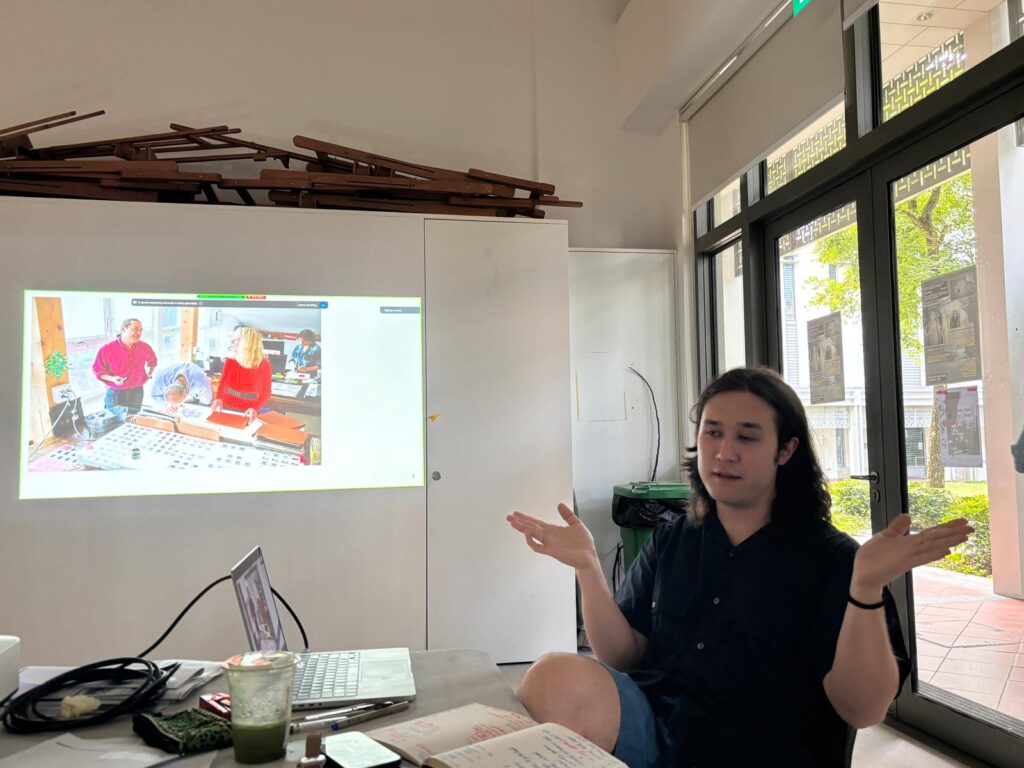
Hunter’s artistic journey began in the Creative Writing track of the Arts and Humanities Major at Yale-NUS College. When asked about his turning point from writing to visual art and art history, Hunter recounts being in the Elm Dining Hall during lunch one day in Junior year expressing his hesitation towards visual arts, to an Art History professor who was queuing for food in front of him. “She told me not to be so afraid, and that abstract expressionism is about using materials and experimenting without needing prior training or formal background, ” Hunter recalls. “This was intriguing to me, and that same evening I went and bought some rolls of canvas and some buckets of paint, and I rolled them out at the Elm Courtyard. And I forgot to buy any paintbrushes, so I started using my hands to throw the paint around on the canvas, on the ground.”
From then on, Hunter started visiting what is known today as the Georgette Chen Art Studio, to paint every night. “I realised that writing, which was what I was doing more of, is very in-my-head and very abstract. But this kind of painting is very embodied and physical, in a way, and it activated me physically,” Hunter said.
Besides this fateful encounter that catalysed his journey into the visual arts, Hunter’s time at Yale-NUS College and in Singapore cultivated in him a practice of seeking and embracing diversity in people. Hunter realised that simply being so far from home, and immersed in such diverse and colourful communities, was an education in and of itself. He spent time getting to know the different people at the College and outside of the classroom, off-campus – hawker owners, shopkeepers, etc. “Building relationships with different types of people across different levels and sections of society transitioned into my post-College project of travelling around Southeast Asia and meeting a lot of different artists.” Hunter reflected on how he is always trying to move conversations and materials outside of and around traditionally isolated and separated social spaces, and this was significant to his talks at the College, where he shared with students and faculty about alternative ways of putting art into the world and publishing. “I feel like most people, and myself included, have limited our imagination of what is possible, to what we encounter in the real world. Part of the wonder of meeting so many different people is the expanded sense of possibilities. Once we reckon with that, there is the freedom and responsibility of how we actually want to live.”
Ritika is an independent curator and art researcher working across Asia and Europe. She is interested in artistic kinships as well as the geopoetics (referring to an interdisciplinary approach that explores the relationship between people, landscapes, and places) and geopolitics of curating and co-creating communal assemblages. Rather than seeing herself as merely a curator, she deeply appreciates being “expansive and fluid” in her role that brings her in collaboration with “cool people and communities” on “things that are important in ways that are both personal and planetary”.
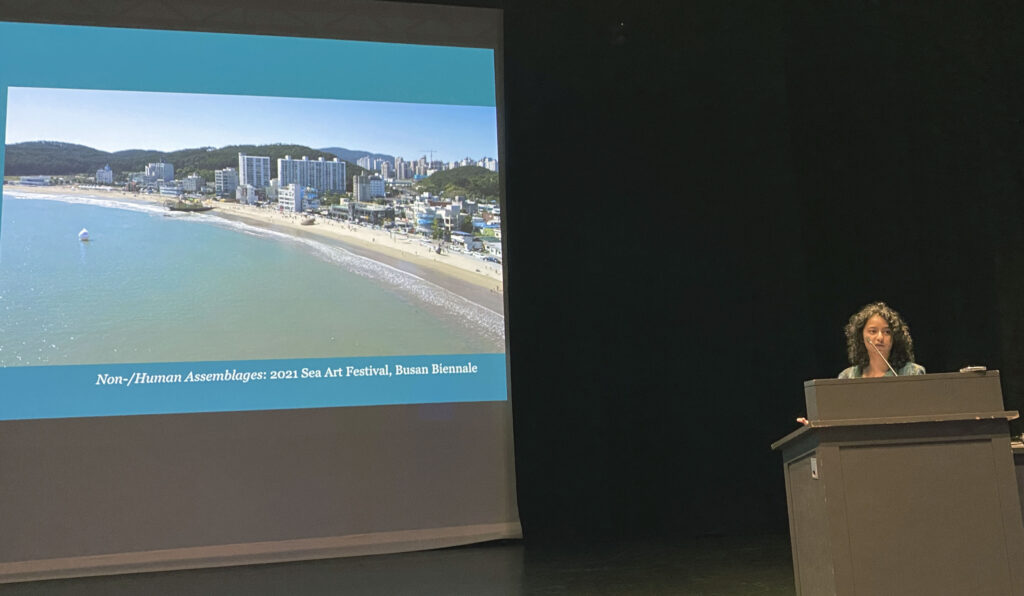
Ritika recalls Professor Rajeev Patke’s course on violence, poetry, and the arts at Yale-NUS College as the first space [she] was able to “hold academic research, structural and ontological violence, and aesthetics all together”. To her, what stood out was how the course provided a platform “to parse the politics and poetics of being and making in a somewhat equal measure”. While it is impossible to attribute a singular event to the trajectories of her plural current life, Ritika acknowledges that the values and spirit of this module continues to form and inform the crux of her work in artistic research and curating.
In fact, the College was where Ritika realised, contrary to her experiences before matriculation, that she could resonate with a lot of peers. “It was formative in ways that seem to exceed the usual variables of time and communal experience, an intense contraction and compounding that could only have happened in the nascent stages of Yale-NUS,” said Ritika. “And so, I wanted to briefly return when kindly invited by Professor Patke. I wanted current and recently graduated students to know that despite the institution’s demise, there are still many of us out there doing some good and fun things, and that they can reach out if they want.”
Ritika’s talk, “On Curating as Nomadic Practice”, mapped out and assembled some of the premises and influences of her recent exhibitions, collaborative research projects, public art festivals, and experimental lectures across the United Kingdom, South Korea, Abu Dhabi, Paris, India, and more. These influences range from hydro-feminist and queer theory to investigating the links between spectrality and bio-pharma-complexes, and parsing climate and geopolitical crises through ideas of non-being and extinction. “It ends with the importance of critical thinking, generous kinships, and trying to fail better,” said Ritika.
Sharing advice to those interested in the art world, Hunter believes in meditating on why one desires to be an artist. Hunter feels that one must be “self-oriented” and “take ownership of one’s own life instead of falling into a particular way of operating because it is the way that things are”.
For Ritika, it is important “not to reduce oneself and one’s practice through a performance of a particular self in these art worlds, be it of identity, geography, or whatever. Sometimes it’s necessary but more often than not, it’s a dangerous diminishing, and one that can be extracted or manipulated by those who say the right words but are choosing to only see you through a myopic lens. And do not deify anyone in this world,” she reminds.
Whether it is the archiving of studio practices, sharing about alternative forms of publishing, or tracing the influences of one’s curatorial premises, we hope that the insights from our alumni will inspire other Kingfishers and the wider community, to pursue meaningful art that is informed and true to themselves.

